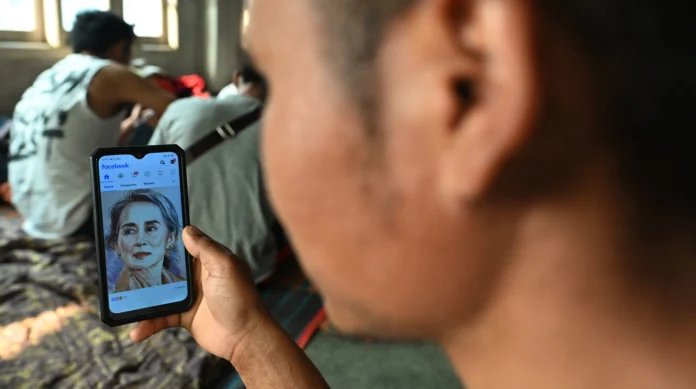Author: Jenny Domino
Affiliation: Just Security
Organization/Publisher: International Human Rights Clinic at Harvard Law School and Just Security
Date/Place: May 11, 2021/USA
Type of Literature: Article
Word Count: 2295
Keywords: Myanmar Coup, Facebook, De-platforming
Brief:
Facebook has a significant role among the Myanmar public, as even the last United Nations Fact-Finding Mission on Myanmar’s (FFM) report called Facebook the internet for Myanmar’s public. Accordingly, government officials and Myanmar’s Tatmadaw (armed forces) are using it for spreading their narratives, statements, and propaganda. When the military coup took place in Myanmar on February 1st, Facebook banned all military and military-based state and media entities but not until the third week of the coup. This is not the first time Facebook has removed accounts and pages. Facebook in the past de-platformed military Senior-General Min Aung Hlaing in 2018 during the escalation of the Rohingya crisis for spreading hate and encouraging human rights violations. Facebook lastly removed Tatmadaw True News Information Team, MRTV and MRTV Live news pages for violating Facebook’s prohibition on incitement to violence and coordinating harm. After the coup and with rising violence, Facebook decided to indefinitely suspend military and military-based accounts and pages on no account of what their contents included in 2021. Tatmadaw has also used social media platforms—especially Facebook—to spread vote fraud narratives regarding Myanmar’s November elections. After the army seized power, although it shut down the internet and social media, the people of Myanmar could still access by VPN and Facebook kept dominance in the public. The author tries to bring attention to Facebook’s delay in acting to remove accounts that are spreading hate and promoting the violation of human rights. For instance, after the coup, Facebook decided to “significantly reduce” the distribution of misinformation originating from military accounts and pages still operating on the platform, but didn’t immediately implement a strict ban.
By: Esra Ibrahimagaoglu, CIGA Research Intern




